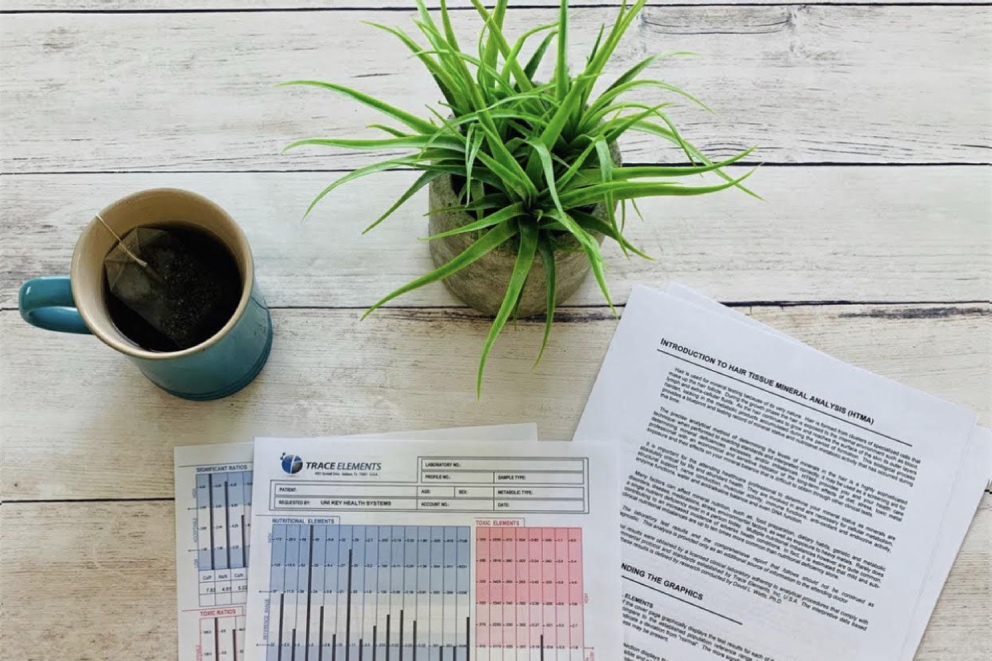In the world of integrative health, understanding the body’s intricate systems and finding the root causes of imbalances is paramount. One tool that is gaining recognition for its ability to offer deep insights into our health is hair mineral testing. This non-invasive test analyzes the mineral content of your hair, providing a snapshot of your body’s nutritional deficiencies, heavy metal toxicities, and overall metabolic rate. But how exactly can this help with understanding and supporting your hormones? Let’s dive in.
The Connection Between Minerals and Hormones
Minerals are the spark plugs of the body, essential for the countless biochemical processes that sustain life, including hormone production and regulation. Each hormone relies on specific minerals to function correctly. For example, magnesium plays a crucial role in the production of progesterone, thyroid hormones, and estrogen, while zinc is vital for the production and release of insulin.
An imbalance in these essential minerals can lead to hormonal imbalances, manifesting as symptoms such as fatigue, weight gain, mood swings, and menstrual irregularities. By identifying mineral imbalances through hair mineral testing, individuals can take targeted steps to correct these imbalances, thereby supporting their hormonal health.
Advantages of Hair Mineral Testing
1. Long-Term Data
Hair mineral testing provides data over a longer period compared to blood tests, which only reflect the body’s mineral status at the moment of the test. Hair analysis can give insights into the body’s mineral levels over several months, offering a more comprehensive view of your overall health.
2. Non-Invasive and Convenient
The test is non-invasive, requiring only a small sample of hair. This convenience makes it an attractive option for those looking to understand their health better without undergoing more invasive procedures.
3. Detects Heavy Metals
Exposure to heavy metals like lead, mercury, and arsenic can disrupt hormonal balance. Hair mineral testing can detect these toxic metals, allowing for interventions to reduce exposure and mitigate their effects on your health.
4. Customized Nutritional and Lifestyle Recommendations
Based on your test results, I can offer personalized advice on diet, supplements, and lifestyle changes to address mineral imbalances and support hormone health.
How to Use Hair Mineral Testing to Support Hormones
1. Identify and Correct Mineral Imbalances
By pinpointing deficiencies or excesses in essential minerals, you can adjust your diet and supplement intake to restore balance. For example, if the test reveals a magnesium deficiency, increasing your intake of magnesium-rich foods or supplements can support hormonal balance.
2. Detoxify Heavy Metals
If the test indicates heavy metal toxicity, then I can recommend specific detoxification protocols to eliminate these metals from your body, thereby reducing their impact on your hormonal health.
3. Monitor and Adjust
Hair mineral testing can be repeated periodically to monitor your progress and make adjustments to your nutritional and lifestyle interventions as needed. This ongoing monitoring helps ensure that your approach remains aligned with your body’s changing needs.
Conclusion
Hair mineral testing offers a unique window into the body’s internal environment, revealing critical insights into mineral imbalances and heavy metal toxicities that can affect hormonal balance. By leveraging these insights, individuals can take proactive steps to support their hormonal health through targeted dietary, supplement, and lifestyle changes.
In the realm of integrative health, where the focus is on treating the individual as a whole, hair mineral testing is a valuable tool, providing personalized data to guide holistic health strategies. It’s not just about treating symptoms but about understanding and addressing the underlying causes of imbalances, paving the way for true healing and wellness.

